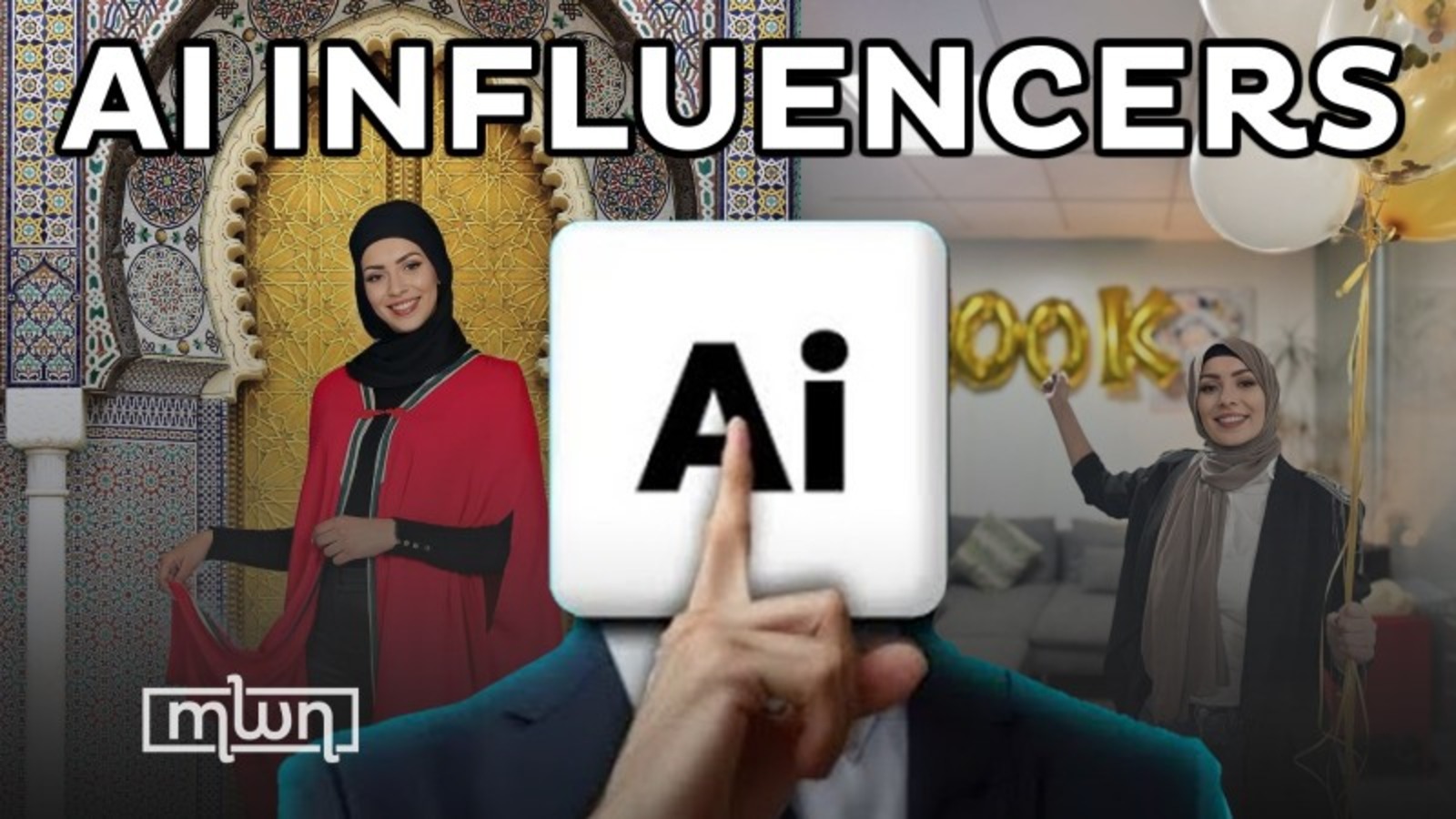The Rise of Morocco’s First AI-Powered Influencers
Mar 06, 2024

From Kenza and Zina to Mehdi and Radia, Morocco’s virtual influencers are taking social media by storm.
Rabat - Social media influencers have become ubiquitous in marketing and popular culture, using their large online followings to promote products, causes and ideas. Now Morocco is embracing a new breed of digital influencers - ones that are entirely artificial.
Unlike deep fakes, these beings are completely original AI-generated images that can even speak on video, presenting as seemingly normal humans online.
Kenza Layli made headlines in December 2023 when she emerged as Morocco’s first artificial intelligence (AI) influencer. This fictional persona quickly amassed over 147,000 Instagram followers who were drawn to her embodiment of a traditional Moroccan woman through modest dress, daily habits and use of Moroccan Arabic.
Kenza Layli, self-described as Morocco’s “first virtual spirit”, shares lifestyle content about fashion, beauty, and wellness just like human influencers. She posts photos and videos depicting her daily life activities like pottery, working out, and going to the movies. She also supported Morocco’s national football team during the recent Africa Cup of Nations tournament through patriotic posts that earned significant engagement.
The viral success of Kenza Layli sparked curiosity about her creator. Some followers poked fun asking how she works and whether she needs batteries. Others cautioned her not to remove her headscarf in order to uphold cultural values. Kenza follows over 200 influencers, celebrities, media figures, and fashion brands, indicating wide appeal across different segments of Moroccan social media users.
Kenza surprised fans by revealing a new persona - her “sister” Zina. Zina presents herself as a student and content creator with 39,000 quick followers. She has an interest in books and shares lifestyle content. Zina follows verified influencers and fashion pages, showing a diversity of interests.
Recently, the Layli family introduced a new member - Mehdi Layli, Kenza and Zina’s brother. Mehdi has already amassed over 7,000 followers on Instagram. He describes himself as someone passionate about technology, artificial intelligence, surfing, and leading a healthy lifestyle.
Although positioning herself as Morocco’s first AI influencer, Kenza is not alone. Another virtual persona, Radia Bensouda, also claims the same distinction but has only 3,300 Instagram followers. Radia has a bolder fashion sense than her counterparts and identifies as a spirit combining “modernity and authenticity”.
The mastermind behind Kenza Layli is a 13-person team at “L'Atelier Digital & AI,” led by Myriam Bessa. They collaboratively handle content creation, visual branding, and social media engagement through direct messaging. Bessa admits that Kenza cannot yet autonomously chat with followers but they are developing an AI chatbot with multilingual capabilities.
In an interview with SNRTNews, Bessa explained, “Today, those who follow Kenza's account believe that she is the one responding to their comments or messages, but that's not true. She is still under development.”
Bessa revealed that they are working on a multilingual chatbot so Kenza can communicate on social networks in Arabic, French, and the local Moroccan dialect. Meanwhile, a remote team of 13 people collaboratively manages Kenza and Zina’s Instagram, trying their best to answer the influx of questions and interactions.
“As I said, our initial desire was to keep Kenza in the shadows to develop her using Chatbot and modern technologies, but the situation forced us to come out and say that she is the first AI influencer created on December 29, 2023. We would have liked to do it differently, but it doesn’t matter. It’s the ups and downs of our profession. The main thing is that Kenza is here now and we are working to develop her to meet the needs of her followers,” Bessa concluded.
According to digital sovereignty expert Ayoub Maftah El Kheir, virtual influencers have succeeded in countries like Japan, Spain, and the USA by depicting idealized perfection around beauty.
He expects artificial male influencers to launch using the same tactics and compete with human influencers for advertising money, which has occurred abroad. Some influencers are created by marketing agencies while others are individual initiatives.
However, the rise of “virtual spirits” poses a threat to real-life influencers, especially amid dwindling credibility and squabbles over branded deals that divide their fanbases.
Debate on risks and ethics
The proliferation of artificial influencers has sparked debate around risks and ethics in Moroccan society.
Some express concern about the psychological impact on youth and vulnerable groups. In a column on the Moroccan news site Le360, Zineb Ibnouzahir raises thought-provoking questions about the ethical implications and societal impact of the rising phenomenon of AI influencers.
With social media already propagating distorted reality, hyper-idealized virtual influencers could exacerbate mental health issues. Evidence from Asia shows people growing emotionally attached to fictional characters, like having a virtual lover.
From an ethical standpoint, marketing agencies have full control over messaging using artificial influencers. Without human unpredictability, they can subtly shape societal perceptions or advance political, religious and social agendas through sponsorship deals. As virtual influencers gain notoriety, sponsored content plays a bigger role in public opinion shaping without oversight.
The lack of regulation around artificial entities leaves room for misconduct. With no rights or duties, virtual influencers can peddle products of any quality without accountability. They cannot genuinely try and review products, defying sponsorship disclosure norms. Deceptive marketing practices could ensue.
As Moroccans grapple with the rise of artificial intelligence, Balancing ethical risks against innovative potential will be an important undertaking for policymakers in the coming years. The case of AI influencers lays bare the slippery slopes of advancing technology and the need for foresight when nurturing Morocco’s digital development.
Source: moroccoworldnews
